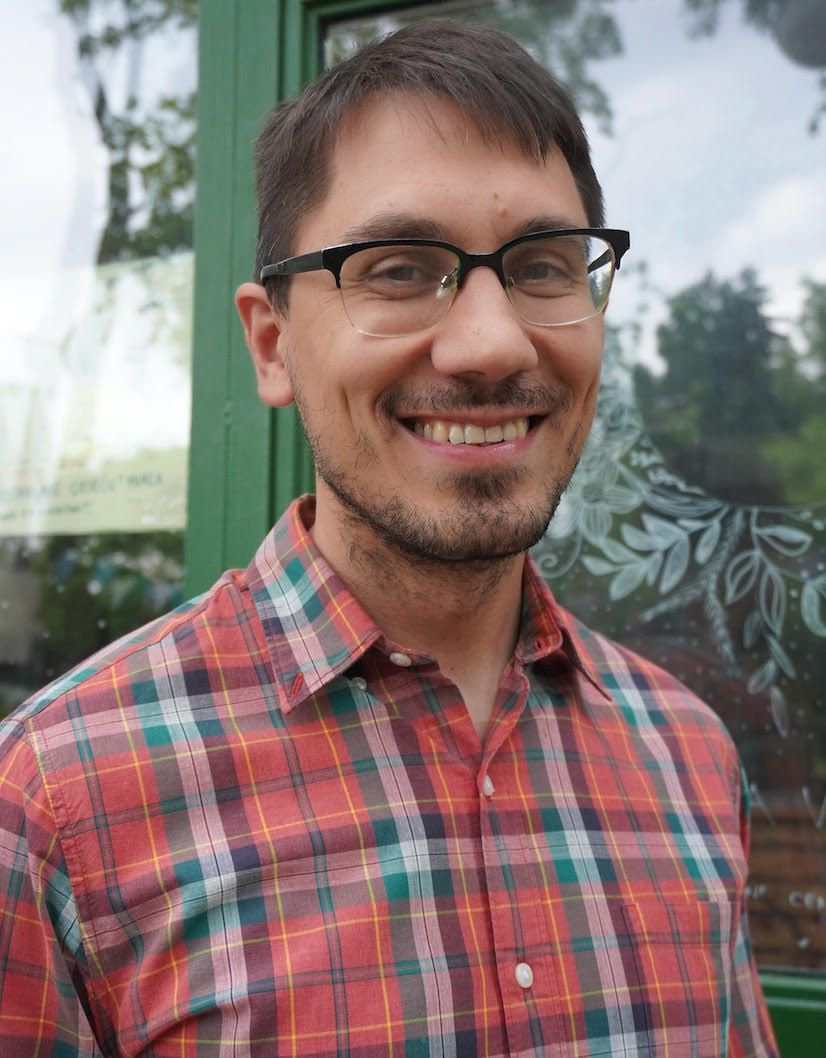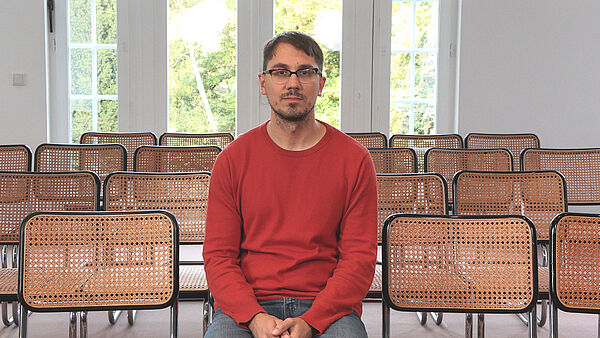
Volodymyr Ryzhkovskyi, Ph.D.
History
Zagreb
Born in 1985 in Uzhgorod, Ukraine
B.A. in History from Uzhgorod National University, M.A. in History from the European University at St. Petersburg, PhD in History from Georgetown University
Fellowship
VUIAS Fellowship abroad
Project
A Ukrainian Universe: The Journal Vsesvit and the Pursuit of Universalism in 20th-Century Ukraine
Ukrainian history, and Ukrainian intellectual history in particular, has been often narrated as a history of national affirmation. My project, while admitting the historical relevance of the national dimension and its connection to the global project of cultural and political decolonization, is an attempt to bring into focus explicitly universalist ideas, inspirations, and agendas, conceptualizing the diversity of the Ukrainian 20th-century intellectual tradition not as a neglected voice communicating an obscure particularistic history, but an inspiration and a source for thinking about the world beyond familiar national and civilizational repertoires and divides. To do so, I will use as a lens the history of the educational and literary journal Vsesvit (“Universe” in Ukrainian). Headed by prominent Ukrainian cultural and intellectual figures, Vsesvit emerged and reemerged in multiple iterations and at critical junctures of the 20th century as a platform for discovering, conceptualizing, and presenting the world in the Ukrainian language and to Ukrainian audiences. I single out three peculiar installments of the Vsesvit journal related to three eras of Ukrainian cultural history: the national and socialist modernization of the 1920s; the 1960s national revival associated with the Thaw generation of shestydysiatnyky; and the post-Soviet quest for fully-fledged cultural independence. Three installments of Vsesvit shed light on the complex entanglements between Ukraine’s imperial and national formations, while testifying to the incredible diversity of the intellectual traditions produced by these entanglements. As this project will argue, through the history of Vsesvit one can explore attempts at being socialist and internationalist, European and ecumenical, elitist and democratic, and at the same time distinctly Ukrainian. At the time of the political consolidation and forceful affirmation of the national identity in the face of Russian genocidal intentions, the history of Vsesvit is a powerful reminder of the diversity of Ukraine and its history and a focal point for problematizing the volatile imaginaries of “universalism,” “future,” and the “world.”Recommended Reading
Ryzhkovskyi, Volodymyr. “Sovetskaia medievistika and Beyond: k istorii odnoi diskussii” [Soviet medieval studies and beyond: A history of a discussion]. Novoe literaturnoe obozrenie, no. 97 (2009): 58–89. https://magazines.gorky.media/nlo/2009/3/sovetskaya-medievistika-and-beyond.html.
–. “Beyond the Binaries: The Postwar Soviet Intelligentsia in History and Memory.” Kritika: Explorations in Russian and Eurasian History 17, no. 2 (Spring 2016): 447–460. https://doi.org/10.1353/kri.2016.0024.
–. “World History as Revolution: Boris Porshnev and the Experience of Dialectical Defeat.” Stasis 6, no. 2 (2018): 176–197. https://doi.org/10.33280/2310-3817-2018-6-2-176-197.
Colloquium, 08.04.2025
A Universe on the Edge of Universality: A 20th-Century Life of a Ukrainian Journal
For nearly 30 years after gaining independence in 1991, Ukraine remained on the periphery of global imagination – an obscure “non-place” overshadowed by Russian imperial grandeur and surviving at the margins of the U.S.-dominated international order. When Ukraine emerged from this obscurity in the wake of Russia’s full-scale invasion, it did so not as a universally embraced symbol of resilience against unprovoked aggression, but as a site where the dangerously fragmented nature of the supposedly globalized, post-Cold-War world became starkly visible.
In this talk, I will examine the imaginaries that have shaped Ukraine’s relation to the world, affected as they are today by political destruction, epistemological uncertainty, and the deep crisis of the Western-dominated, post-Cold War promise of liberal, market-driven universalism. I propose to use this negativity of the present, however, as an intellectual catalyst to explore alternative ways of thinking the tension between the particular and the universal in the Ukrainian context. To do this, I will present my ongoing research into the 20th-century history of the Ukrainian journal "Vsesvit" ("Universe" in Ukrainian), which enables us to trace how Ukraine’s marginality within global universalist frameworks was both contested and redefined throughout the magazine’s long existence, in the context of the political and ideological changes that shaped it. I will particularly zoom in into a peculiar version of the internationalist imagination promoted by "Vsesvit" in the interwar period, which was closely entangled with the new trends in Ukrainian arts, scholarship, science, mass culture, and mass propaganda and practiced in tension with Moscow-based versions of the Soviet Enlightenment. The history of "Vsesvit", as I will argue, can be used as a lens for rethinking the essentialized narratives of nation-building by engaging the constraints and liberatory potential of universalist frameworks, which should still inspire our imagination today.
Publications from the Fellow Library
Ryzhkovskyi, Volodymyr (St. Petersburg, 2018)
World history as revolution : Boris Porshnev and the experience of dialectical defeat
Ryzhkovskyi, Volodymyr (Bloomington, Ind., 2016)
Beyond the binaries : the postwar Soviet intelligentsia in history and memory
